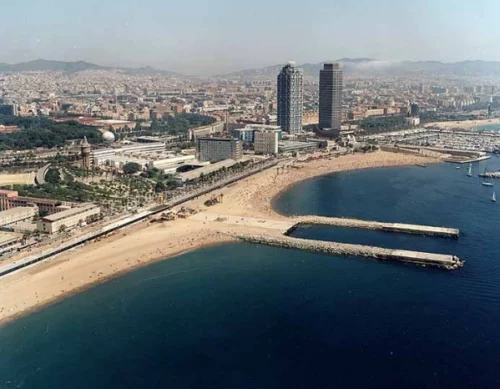Lately visiting the Catalan coast by Russian citizens became the most striking phenomenon in the tourism industry of Catalonia, forming a quite clear picture of the preferences of Russian tourists. In average, they spend twelve days for rest on the coast, spend about 150 Euros per person per day, show interest towards cultural attractions (museums, monuments), local cuisine, and move around the whole territory of Catalonia. All the mentioned characteristics demonstrate the intellectual and financial level of tourists from Russia, making them entirely welcome guests in Catalonia. Russians come to Catalonia not only to sunbathe on the beach or stay for the whole day in the hotel. However, they do prefer hotel rooms fronting the coast so they can enjoy their rest in a family circle.
In recent weeks, the flow of Russian tourists increased to such an extent that at present 207 aircrafts from 18 Russian cities land in Barcelona airport weekly.
According to the Catalan Tourism statistics, the number of visas issued daily in Eastern Europe for the last year comprised 9,000, nowadays, this number reached 11,000. Facilitating in acceleration of the visa issuing process was an important point in the development of this sector of the tourism market. The majority of visas issued to Russian citizens are for two years only, which contributes to the fact that Russians would select Catalonia again as a destination for their vacation or decide to purchase a property on the coast of Catalonia, which usually serves as a secondary residence.
The flow of vacationers from Russia arriving at Barcelona Airport is distributed as follows: 60% of the total amount head for Costa Dorada, the rest 40% – to Costa Brava and the northern coast of Barcelona. According to data for the last year, 61% of the total number of tourists in Spain are foreigners from Russia (35%), the UK (31%) and France (15%), followed by the Irish, Dutch, Belgians, Italians and Germans.
This number is substantial, although it hardly reaches 3.2 million – the number of Russian citizens, who annually go to Turkey on vacation. Turkey is followed by Egypt, Spain, and Greece, which compete for the third place on the list of countries Russian citizens prefer for holidays. Economical and political instability in Turkey contributes to the growth of Russian tourism in Catalonia, which at the same time is forced to compete with the aggressive pricing policy of Greece.
You will meet Russian tourists on the Catalan streets: unlike, for example, the UK citizens, they prefer to leave the hotel and engage in active tourism and sightseeing. On the contrary, tourists from the UK remain at the hotel throughout the day and go out only at twilight. Russians prefer to enjoy active cultural rest, and to return to the hotel quite early for the early dinner.
Russian tourism in Catalonia and its scale have created grounds for the development of a new direction in business – the so-called medical tourism. Some municipalities of Catalonia are obliged to provide intensive Russian language courses for their employees in case they have to serve Russian citizens.




